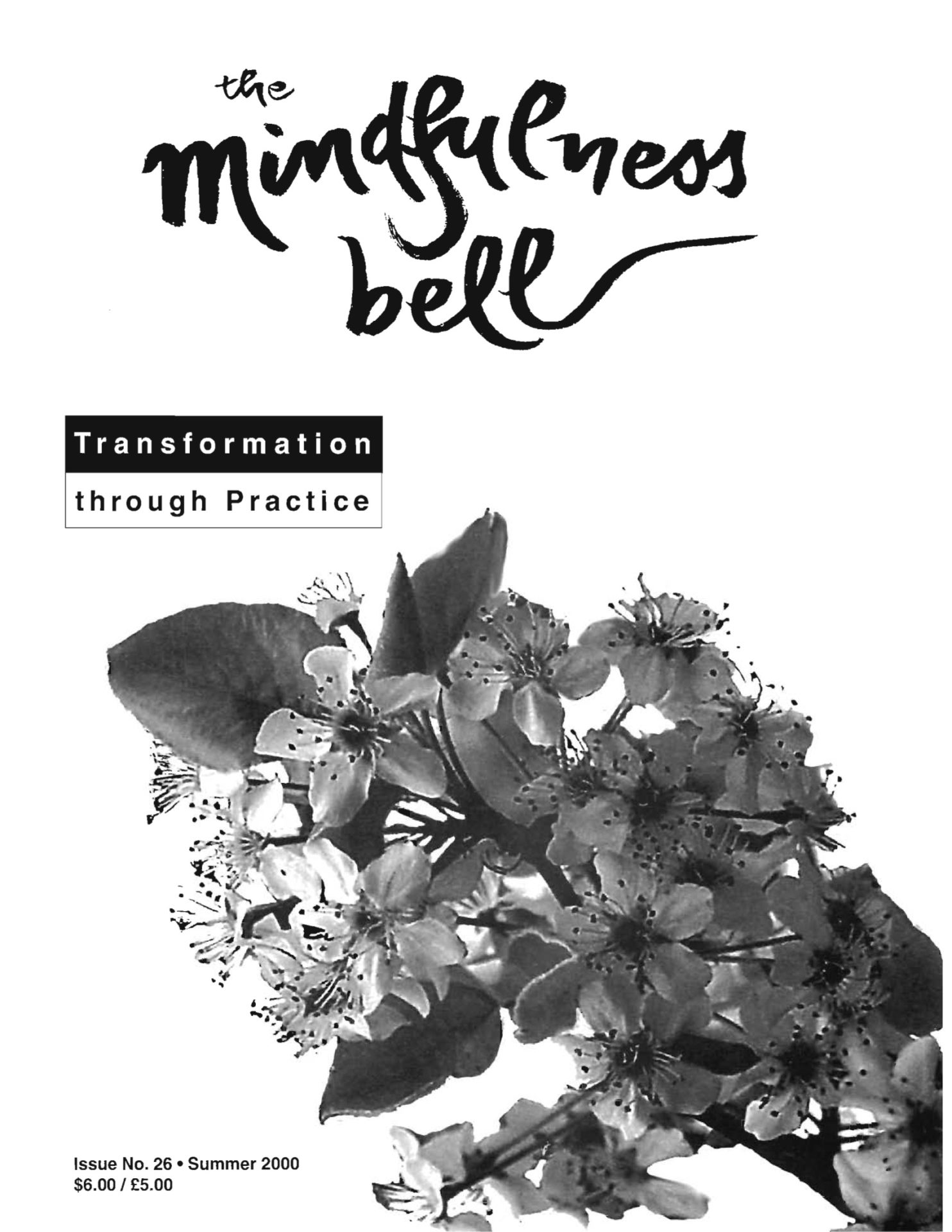By Quyen Do
In the old days, Zen masters sometimes used strong methods to help their students be mindful, to help liberate them from affliction and realize their Buddha nature. A teacher might suddenly beat or kick or shout to stun students into awakening. But Thich Nhat Hanh may be the first teacher to promote mindfulness practice through song. Practitioners around the world —both lay and monastic—love to sing songs of practice. We sing in English, Vietnamese, French, German, Chinese,
By Quyen Do
In the old days, Zen masters sometimes used strong methods to help their students be mindful, to help liberate them from affliction and realize their Buddha nature. A teacher might suddenly beat or kick or shout to stun students into awakening. But Thich Nhat Hanh may be the first teacher to promote mindfulness practice through song. Practitioners around the world —both lay and monastic—love to sing songs of practice. We sing in English, Vietnamese, French, German, Chinese, Italian, Russian, Polish .... Through singing, the Sangha has touched many souls and opened many hearts. For example, Mr. Mau, an ex-teacher, was miserable when he came to a Toronto retreat in 1990. He could not adapt to life in exile. But songs during the retreat transformed his heart, and he was able to find peace and joy.
"Breathing In, Breathing Out" may be the most popular song of all. Thay and the American children composed it years ago at a California retreat for young people. Last June, my daughter and I visited Gia Mon kindergarten in a remote area of central Vietnam. There, we sang "Breathing In, Breathing Out" with 100 young students. We sang the Vietnamese version, which has a different tone, but the teaching is the same. Looking at the children as they sang and gestured with their tiny hands, my eyes filled with tears of gratitude and joy.
During last fall's retreat at Omega, the nuns and monks chanted or sang before each Dharma talk. Their many, beautiful voices filled the Dharma Hall and the hearts of retreatants. Before outdoor walking meditation, they taught us short songs. At the end of the retreat, my new friends, Catherine and Tom, came to say good-bye. Together we sang "No coming, No Going," a touching song written by Sister Annabel. We held each other's shoulders as we sang, "I hold you close to me. I release you to be so free, because I am in you and you are in me." Through the song, we consciously practiced nonattachment and interbeing in the present moment.
Before the Omega retreat, I knew Thay's Dharma talks had helped ease much suffering. I have studied with Thay many times, and in each retreat, I have felt a new touch of the teachings, something new to apply to my practice. Surprisingly, it was only in this retreat that I received wholeheartedly the teaching of the Singing Sangha. Now, I always invite my friends to share the joy of singing together—especially in Sangha gatherings.
Quyen Do, True Wonder, a freelance journalist, practices with Maple Village Sangha in Canada and with Nu Hong Sangha in California.

